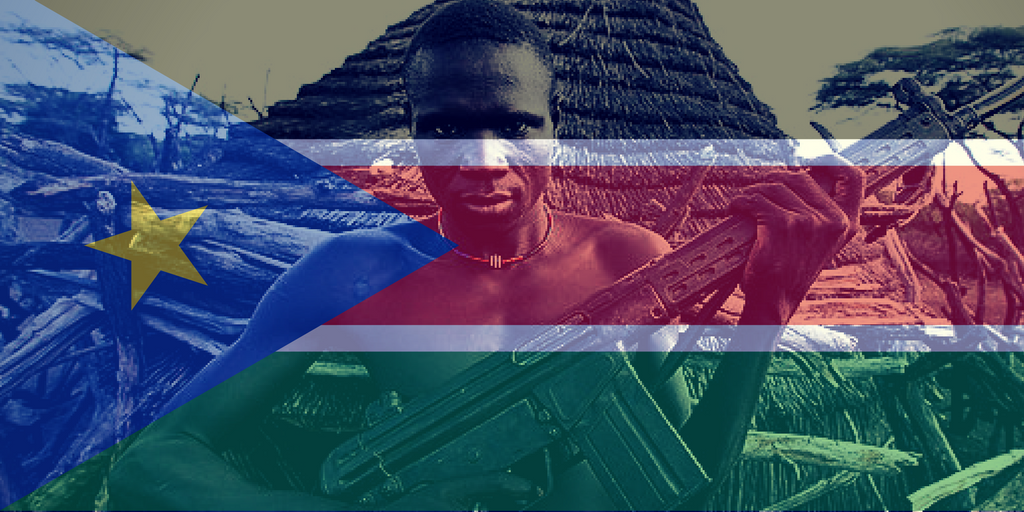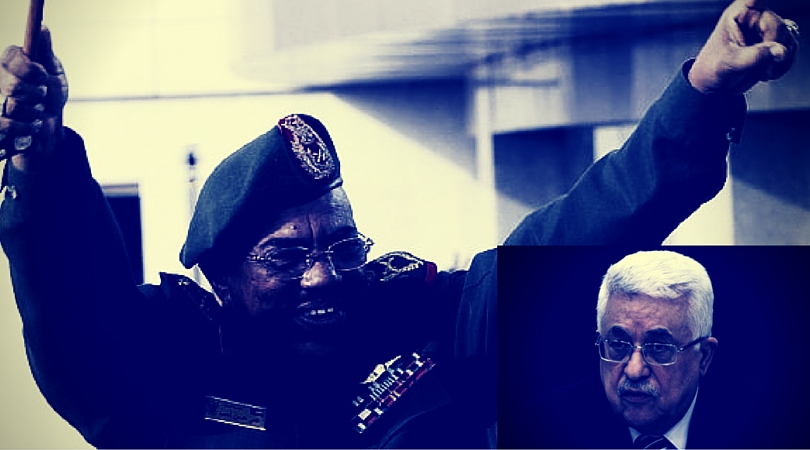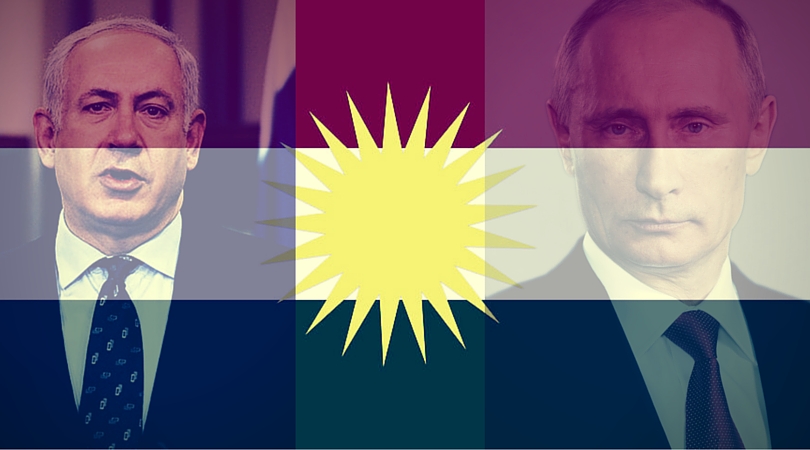For more than 25 years the people of South Sudan fought their powerful common enemy to a standstill. The enslaving Arab Islamist forces of north Sudan were matched fire for fire until the northerners acknowledged that the southerners who are Animists and Christians have rights to live free and on their own cultural and religious terms. The southerners fought valiantly as men, they fought as one people; they fought long and won their freedom from the oppressors on July 9, 2011.
Vicariously, those of us who are fighting to free Biafra from the vicious grip of the Islamic state of Nigeria participated in the South Sudanese victory like it was our own. Yes, in more ways than not, the Sudanese victory tends to foretell how the eventual Igbo freedom from Nigeria will look like. Why the Biafrans saw in the South Sudanese victory their own is because in Nigeria Igbo people are also faced with the same Arab-Islamist forces of Hausa, Fulani and Yoruba oligarchies which are bent on the total extermination of the Igbo. So, since the South Sudanese withstood similar enslaving forces and defeated them, the victory has remained an evergreen source of inspiration for the Igbo in Nigeria.
While they fought in the trenches, on the hills and in all the many battlefields; the South Sudanese leaders had some squabbles and disagreements. But they always found ways to settle their differences and disputes and sustained the fight against the enslavers. At the end of the battle they won a country but now this is 2016, they need to win a nation.
Unfortunately, by 2013 the people lost their hard won country to personal interests and power flexing of their leaders. The leaders’ individual interests and show of power plunged the entire country into a civil war which has raged on to their shame and the disappointment of their admirers. These leaders need to put aside for one moment their pursuit for personal prestige and show some example of caring and benevolent leadership styles. Urgently, they must find solutions now; find ways to end childish things and begin the onerous and matured business of governing and managing a country and the welfares of its people.
Earlier on, at the southern tip of the continent, South Africans who had also fought long and arduous against those who oppressed them through Apartheid system, celebrated their freedom in 1994. Some of the leaders of the fight were imprisoned for more than 25 years. But their fight for equality had lasted for about a century. In the end the South Africans also won freedom and the right to be equal participants in the affairs of their country. But perhaps that is where the similarities of the two fights end. Today, and unfortunately so, the leaders of South Sudan are turning their laudable and prideful victory into a tragedy and nightmare. The attitude of the South Sudanese leaders toward leadership and power is largely to be blamed.
In South Africa there were Nelson Mandela and others like him who to a greater extent understood the nature and concept of victory and power – altruistic, magnanimous, camaraderie; transient and flitting. While in South Sudan there are Salva Kiir, Riek Machar and others who believe that victory is personal, individualistic and an end in itself. And that power should be held onto permanently and used vindictively to witch-hunt opposition while the opposition egoistically asserts that it is not weak, after all. That it also has influence. But the truth is that good leaders, whether in opposition or not cannot be vindictive and sour or constantly trying to prove some points.
The big guys of South Sudan are shamelessly flexing unattractive and unimpressive muscles, trying to prove personal superiority while their lowly citizens to whom the victory and power truly belong continue to suffer in pain and devastating impoverishment. In the mind of these leaders, they have come to erroneously think that because they were opportune to be present at the moment of the people’s victory therefore they have become some divine beings who are now infallible and indispensable. This attitude shamefully violates the memory and honor of those heroes who also fought and died before July 9, 2011. Sometimes one wonders if these leaders have ever considered that old saying of leaving the stage while the ovation is still loud.
Down through time, history has not lacked noble and honorable achievers and victors who left exemplary records which those that care can imitate. In the following story we learn that sometimes, because of the feelings of others that good leaders learn to let go of personal pleasures and comfort, even when they can afford them. In other words, true leaders cannot always take it just because they can. The biblical David was a military commander of ancient Israeli army who is still recognized as a successful leader of his people because he understood how to handle victory and power without being sucked into the twilight zone of those two impostors. It is reported that at one point during the heat of a battle, when an enemy force occupied Bethlehem his hometown, David thirsted for water from a well in Bethlehem. When he made his wish known, three of his officers volunteered and risked everything by cutting through the ranks of the enemy to fetch the water from the well. On their return, David would not drink the water but poured it out as libation, saying that there was no way he could drink it because the water equated with the blood of these men who risked their lives in order to satisfy his personal fancies.
As the leader, nothing prevented David from drinking the water but he resisted greed and insensitivity and instead poured the water away. We can play the story forward and contrast it with the attitude of the present South Sudan generals who it seems would rather impoverish and drink the blood of their fellow country men, women and children merely to hold on to power and prove how right and indispensable they have become.
The Monster is in us
My poet friend Jonathan Wilson said that as a little boy he looked for the monster under his bed. But now as an adult he suddenly discovered that the monster was himself. These South Sudanese generals fought so gallantly to win their many battles only to be defeated by mere selfish pursuit of personal glory and the unwillingness to let go and concede personal fancies in the interest of peace in the country for which they have already sacrificed so much. The present arch rivals President Salva Kiir and his former Vice-President Riek Machar fought side by side in the military until the enemy was defeated and the people of South Sudan became free and independent. Now, they are finding it impossible to defeat the enemy in their individual selves. Good leaders aim to leave behind legacies which acceptably, are more difficult to do than winning battles. In trying to win wars the aim is to defeat the enemy, while in building legacies true leaders must defeat their selves. At first it was believed that the problem of the South Sudanese people was the hegemony and evil devises of the Islamic Arabs in the north. Sadly, due to the selfish interests of their leaders, the people seem to be doing a rethink.
To many observers, that victory over the bigoted fanatical forces of Islamic Arab feudalism will not be complete until the leaders are able to defeat their personal demon. But they still have the time and opportunity to save themselves, the country and the people in it. These leaders must come to the realization that power as everything else is only a means and not an end in itself. All powers and attained positions are transient and temporal and should be treated as such.
Nevertheless, we are not pretending to believe that sentiments and emotions may be all there are in making these men to do the right thing. Sometimes there may be need for something extra. So, while we are appealing to the conscience of these men, to reconsider and solve this problem in the same way they had solved other disagreements they had when they fought for their liberation, we are not ruling out the need for genuine external assistance in helping solve this problem. The international community should find a way to use sanctions and other forms of economic and political pressures to force these men to do the right thing.
Part of what I consider to be the right approach in solving the problem is to avoid an obtuse and blanket kind of condemnations and approvals. Let the guilty be blamed and those who out of a sincere and honest heart have done the right thing should be praised and encouraged. It will be more beneficial, especially in the interest of posterity for those who do intervene in this matter to be specific when dealing with all aspects of the issue. There is the need for a comprehensive and holistic approach in trying to solve South Sudan. As an example, in my opinion, I think that the time has come for the review of the country’s political and social structure. The prevailing National Constitution was drawn under the circumstances of strife and war with an external force. As a matter of necessity, since the country as an independent state is now under a civilian regime, it may be a good idea to produce another constitution which takes cognizance of present realities.
[huge_it_share]





